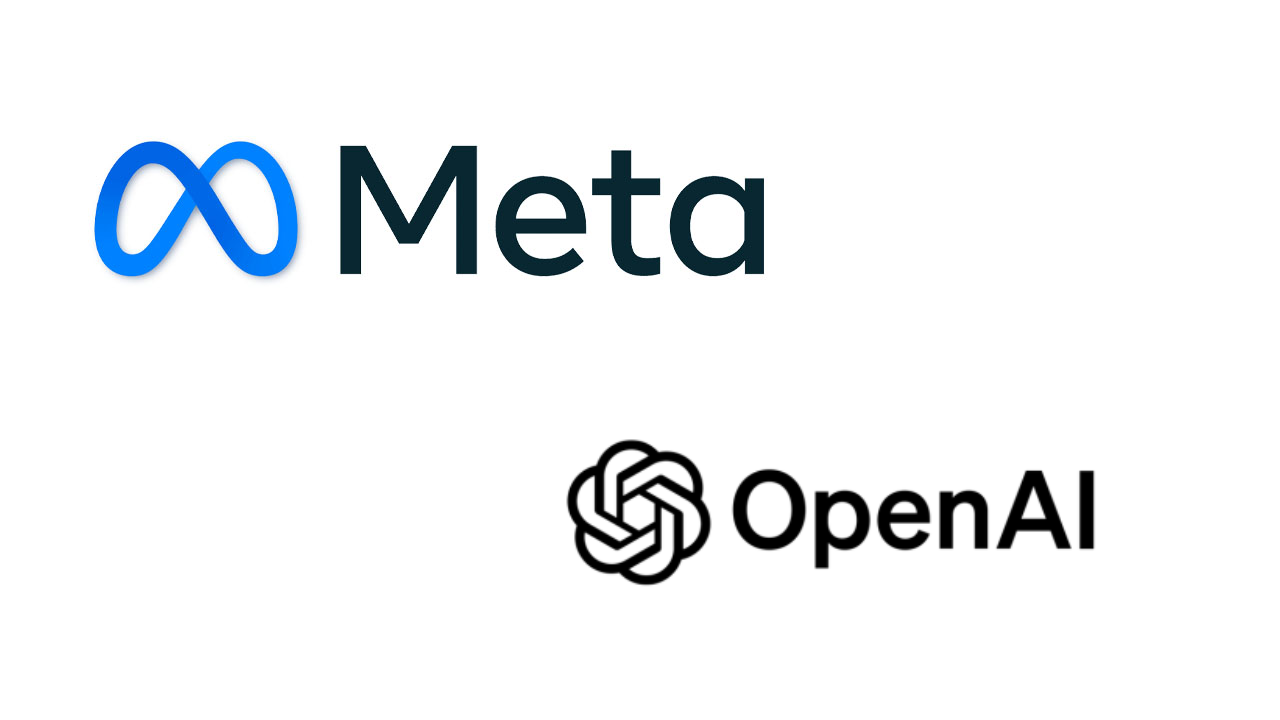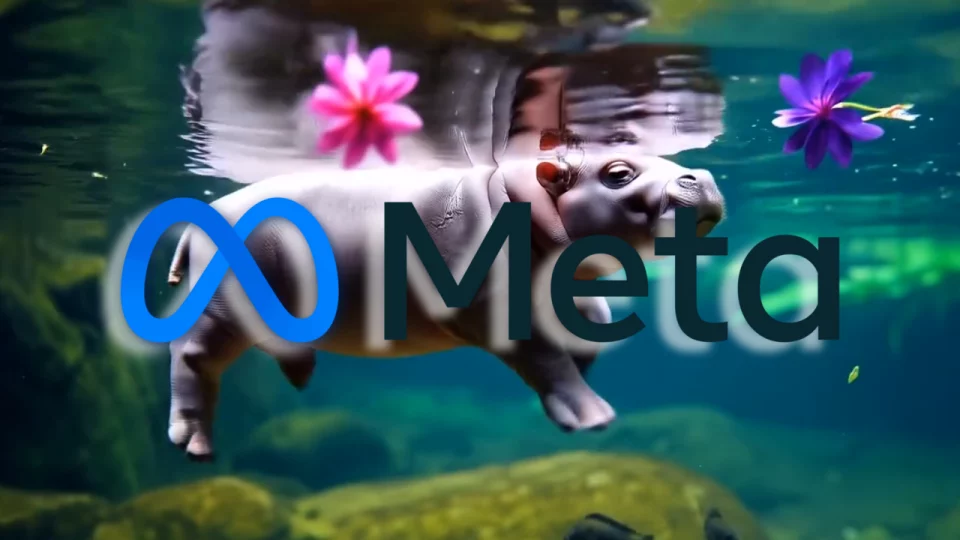Meta, the parent company of Facebook, has recently unveiled a groundbreaking AI tool known as Movie Gen, a new entry in the realm of artificial intelligence that challenges the current leading AI models. This model, designed to generate both video and sound, represents a significant stride for Meta, marking an ambitious move to rival prominent startups like OpenAI and ElevenLabs.
Table of Contents
The Capabilities of Movie Gen
Movie Gen is an advanced AI model created by Meta that has the capability to produce realistic video and audio clips based on user prompts. Its abilities range from creating standalone visual content to integrating audio effects, making it a comprehensive tool for media generation. Notably, it has the potential to rival models developed by other leading startups, including those from OpenAI, ElevenLabs, and Runway.
Meta demonstrated Movie Gen’s versatility through examples such as animals swimming, people painting on a canvas, and video alterations where creative modifications were made. In one video, Movie Gen was used to add pom-poms to a man running across a desert, and in another, it transformed a skateboarding scene in a dry parking lot into one with splashing puddles. Such examples illustrate the model’s ability to seamlessly edit and augment existing videos, adding imaginative elements to otherwise ordinary footage.
The model also comes with the ability to produce background music and synchronized sound effects. With these features, it aims to make storytelling richer and more immersive, blending visual and auditory elements. According to Meta, videos created by Movie Gen can reach up to 16 seconds in length, while audio clips can be extended to 45 seconds, giving creators flexibility in the type of media they want to generate.

Comparison with Existing AI Models
Meta shared data that suggests Movie Gen performs competitively compared to similar tools from other companies. This is significant considering that Meta is positioning Movie Gen against well-established players in the market, such as OpenAI’s products and ElevenLabs.
Earlier this year, OpenAI, backed by Microsoft, introduced Sora—a generative AI tool capable of creating cinematic-quality videos based on text prompts. OpenAI’s Sora grabbed attention for its promise of simplifying and accelerating the film production process. However, it also brought concerns around copyright and ethical usage. Movie Gen, in many respects, positions itself in direct competition with Sora, especially in the field of generative AI that can simulate complex scenes for storytelling and filmmaking.
The competition between Meta’s Movie Gen and OpenAI’s tools reflects an ongoing race within the AI sector. Major technology firms are increasingly trying to outpace each other in offering the most advanced and comprehensive generative AI tools. While OpenAI remains a powerful player in the industry, Meta’s entry, particularly with its combination of video and sound generation, adds fresh competition and innovation to the field.
Applications in the Entertainment Industry
Meta’s announcement comes amid a growing interest in generative AI technology within the entertainment industry. This technology holds the promise of transforming traditional content creation processes by offering innovative ways to generate content efficiently. Hollywood, in particular, has expressed mixed feelings—while some are eager to embrace these tools to speed up and enhance filmmaking, others are wary of the legal and ethical implications, especially concerning copyright issues.
The entertainment industry is witnessing increased experimentation with AI tools. Studios, filmmakers, and content creators are keen on using these innovations to augment their projects—making special effects, altering scenes, or even generating entire sequences quickly and at a lower cost. For example, Lions Gate Entertainment recently announced a collaboration with AI startup Runway, providing access to its film and television library in exchange for utilizing AI models to enhance their productions.
Meta also announced that instead of releasing Movie Gen for open use—like its Llama series of large-language models—it is choosing a more conservative approach. Meta intends to work directly with the entertainment community and other content creators, integrating Movie Gen into its own products sometime in 2024. This strategy is indicative of Meta’s intent to exercise more control over the use of the tool, perhaps as a response to growing concerns about AI misuse.

Challenges of Copyright and Deepfakes
The rapid development of generative AI has not been without its challenges, particularly in terms of ethical issues. The entertainment industry has been especially vocal about potential copyright violations, as AI models are often trained on vast datasets that include copyrighted works, sometimes without permission. The idea of an AI system generating content based on proprietary material without a license raises significant questions regarding intellectual property rights and fair use.
An incident that garnered attention earlier this year involved Scarlett Johansson, who accused OpenAI of using her voice without authorization for its chatbot. This kind of unlicensed use of an actor’s likeness or voice for AI training has sparked widespread concern in Hollywood, where actors and creators are worried about losing control over their image, voice, and artistic contributions.
Another significant issue pertains to deepfakes—AI-generated videos that can create hyper-realistic simulations of people, often for misleading or malicious purposes. Lawmakers in the United States and around the world have expressed concern about the impact of AI-generated deepfakes on elections, with countries such as Pakistan, India, and Indonesia experiencing the spread of manipulated media. The rise of AI-generated content, while technologically impressive, has raised alarms about misinformation and the erosion of trust in visual media.
Meta has stated that it has taken these risks into account in developing Movie Gen. The company chose not to open the model to the public to mitigate the potential risks associated with misuse, instead opting to collaborate with vetted partners in the entertainment industry. However, critics argue that even with these precautions, the risk of deepfakes and content misuse remains.
Meta’s Strategy in the AI Race
Meta’s introduction of Movie Gen highlights the company’s broader strategy to establish itself as a leading AI innovator. Over the past few years, Meta has made significant investments in artificial intelligence, with the Llama large-language models being a notable example. With Movie Gen, Meta appears to be expanding its AI expertise beyond text-based models into multimedia, recognizing the growing demand for content creation tools that blend visual and auditory elements.
Meta’s decision to integrate Movie Gen into its products aligns with its ongoing efforts to build an interconnected ecosystem of AI tools across its platforms. By incorporating this technology into services like Instagram or Facebook, Meta could potentially enable users to generate creative video and audio content at the click of a button, further enhancing the social media experience. It would also offer a way for Meta to monetize AI capabilities, either by adding premium features or by boosting user engagement with dynamic content.
Additionally, Meta’s strategy is geared towards fostering direct partnerships with content creators and industry professionals. By controlling access to Movie Gen and working closely with trusted partners, Meta can position itself as a responsible player in the AI field, differentiating itself from companies like OpenAI, which have faced criticism over the open nature of their models. This approach also allows Meta to gather feedback and fine-tune the model, ensuring that it meets industry standards for quality and ethical use.
